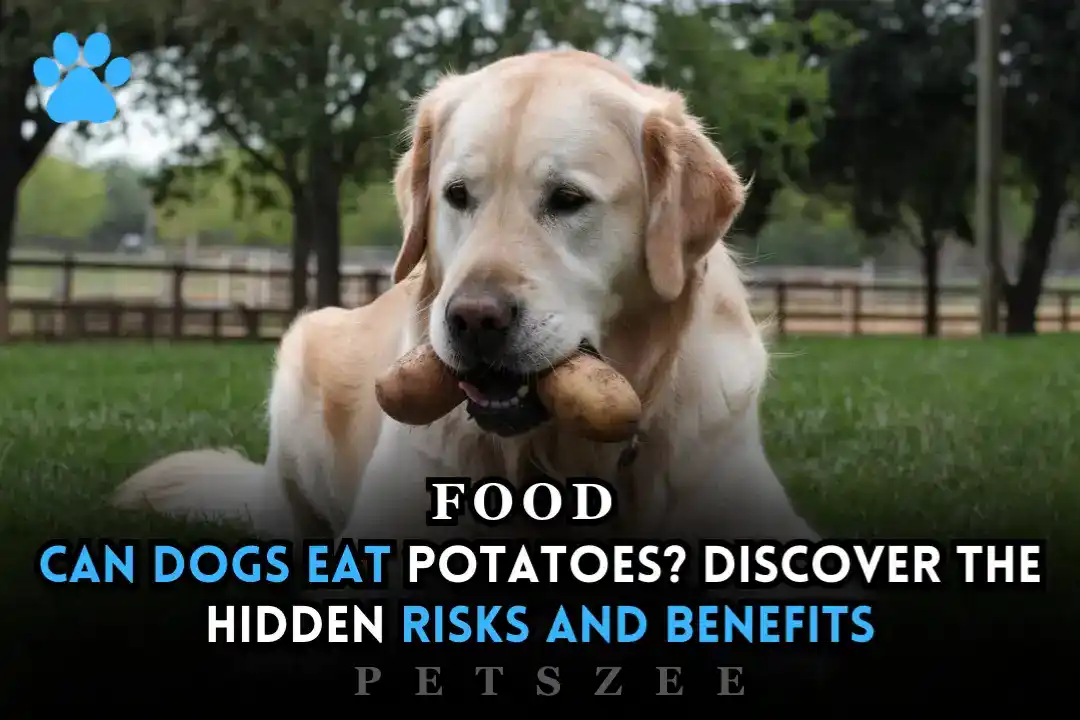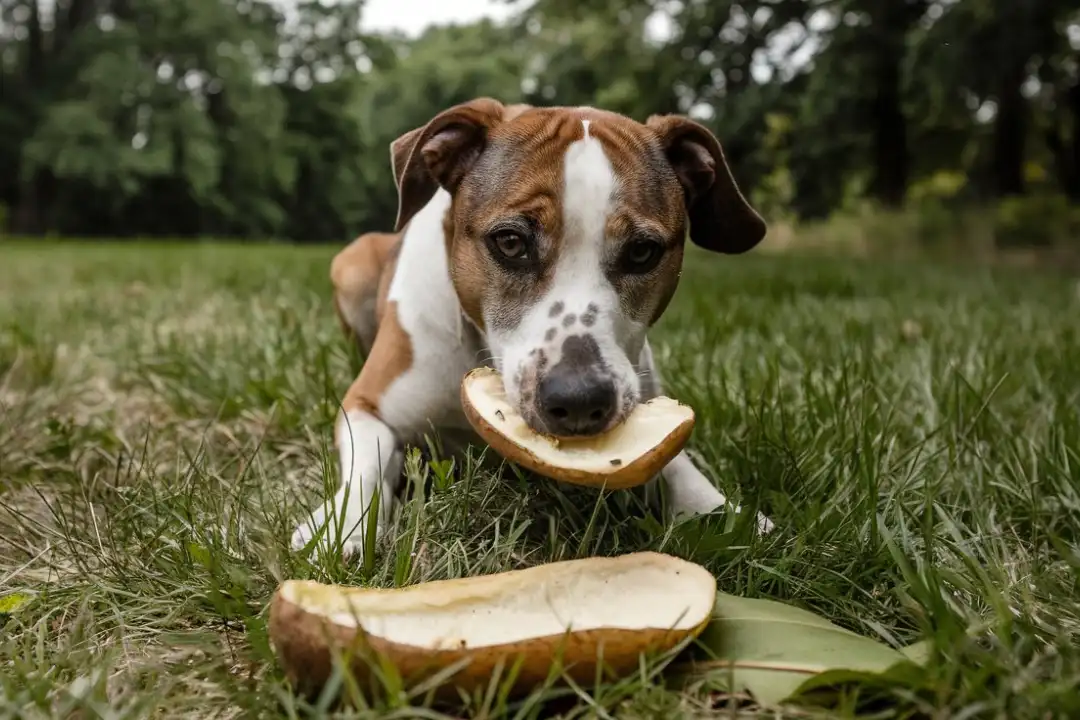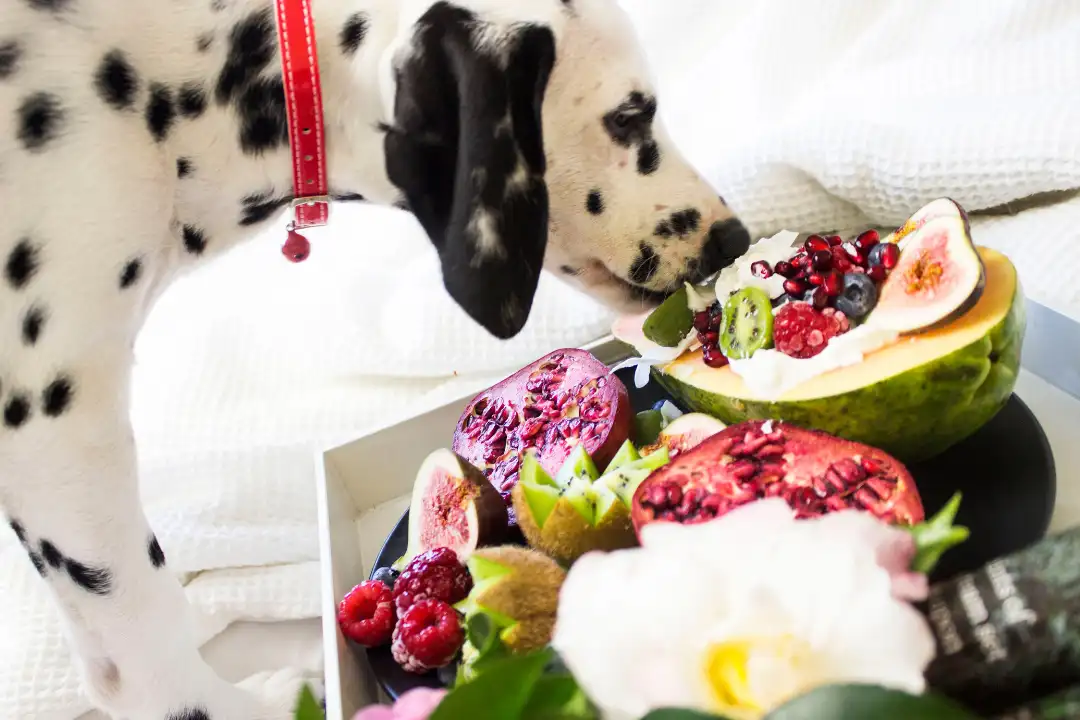There are many ways to enjoy potatoes: roasted, baked, fried, or mashed. But for dog owners, there’s one big question: Can you share these delicious potato dishes with your pet? The answer isn’t as simple as a yes or no. While potatoes are a common part of our meals, transitioning them into your dog’s diet requires some consideration.
I’ve found that even small changes in a dog’s diet, like introducing potatoes, can sometimes lead to unexpected reactions. Understanding how to offer potatoes in a way that won’t upset your pet’s health is crucial. Dogs have different nutritional needs compared to humans, and what’s safe for us may not always be safe for them.
A small amount of salt or sugar that’s barely noticeable to us could be too much for your furry friend. It’s essential to understand how to offer potatoes in a way that won’t upset your pet’s health.
Can Dogs Eat Potatoes?
Yes, dogs can eat potatoes, but there are some important things to keep in mind. Potatoes must be prepared plainly and cooked to be safe for your pet. Raw potatoes have a toxic substance known as solanine, which can be harmful to dogs. Cooking the spuds reduces the solanine levels, making them safe for your pup to enjoy.
According to Dr. Danielle Bernal (global veterinarian with Wellness Pet Company), plain, boiled, or baked potatoes are healthy for dogs when given in moderation. Avoid adding spices, butter, or other seasonings, as they can cause gastrointestinal distress or other health issues. For example, high-fat ingredients like butter can be particularly problematic. Mashed potatoes with butter or sour cream should be avoided due to their potential to upset your dog’s stomach.
While potatoes are a good source of energy and provide some essential vitamins and minerals, be careful not to overdo it. Too many potatoes can lead to blood sugar spikes, especially for dogs with diabetes. Always consult your vet before introducing new foods into your dog’s diet to ensure it’s a healthy choice for them.
If you’re curious about other foods like bologna and their safety for dogs, check out our article on Can Dogs Eat Bologna?
What Potatoes Can Dogs Eat?
When it comes to potatoes, cooked plain ones are fine for dogs. Generally speaking, prepared potatoes, like boiled or baked without any added ingredients, are a safe option for your dog. However, fried potatoes or those with butter or cheese are not a good choice.
Due to their high fat and calories, potatoes can upset your dog’s stomach and may be unhealthy. Always avoid giving your dog fried or extra-seasoned potatoes. Plain and cooked potatoes are a better way to share this tasty treat with your furry friend.
Can Dogs Eat Sweet Potatoes?
Sweet potatoes are a healthy choice for dogs. Unlike regular potatoes, sweet potatoes are packed with vitamins like vitamin A, vitamin C, and vitamin B6, along with essential minerals such as calcium, potassium, and iron. They are also high in fiber, aiding your dog’s digestion.
I’ve seen that when cooked and the skin removed, sweet potatoes are easier for dogs to digest and can be a nutritious part of their diet. However, make sure to serve them in moderation as an occasional treat and not as a large part of their meal.
It’s important to prepare sweet potatoes without any toppings or seasonings. If you’re introducing this root vegetable to your dog for the first time, start with a small amount to ensure your pet can handle it without any digestive issues. If you have any concerns, it’s a good idea to consult your veterinarian. Remember, while sweet potatoes are a great treat, balance in your dog’s diet is key to avoiding long-term health problems.
Can Dogs Eat Mashed Potatoes?
Yes, dogs can eat mashed potatoes, but with some important cautions. When you prepare mashed potatoes for your pet, it’s best to keep them plain. Avoid adding salt, butter, milk, or other seasonings that can harm dogs.
Mashed potatoes should be cooked thoroughly and served in small amounts. While potatoes offer some nutritional value, mashed potatoes should not replace your dog’s formulated dog food. Stick to carefully prepared meals that meet your dog’s canine needs. Always ensure any new food is safe for your dog’s diet.
Can Dogs Eat Raw Potatoes?
According to Dr. Matt, a vet with 13 years of experience, dogs should not eat raw potatoes. They contain solanine, a toxic substance from the nightshade family that can cause vomiting, diarrhea, and lethargy.
Raw potatoes are hard to digest, posing gastrointestinal issues and a choking hazard. Cooking potatoes by boiling or roasting makes them easier to digest and reduces solanine levels. While cooked potatoes are generally safe if plain, always monitor your dog and contact your vet quickly if they eat raw potatoes.
No, dogs should not eat potato skins. The skin of a potato is difficult for dogs to digest and can cause an upset stomach. Even though humans often enjoy potato skins as part of their meals, it’s best to remove the skin before offering potatoes to your pet. The skin can be tough and may cause gastrointestinal problems for your dog.
If you are unsure about feeding your dog potatoes with skin, it’s always a good idea to check with your vet. To keep your dog safe, prepare potatoes without the skin and avoid adding seasonings or toppings like butter or cheese, which can also upset their stomach. Remember to scoop out the flesh of the potato if you’re using baked potatoes, and make sure there are no raw potato skins left.
Can dogs eat seasoned potatoes?
Seasoned potatoes might not be safe for dogs. While plain potatoes are fine, seasonings like garlic and thyme can be harmful. Garlic is especially toxic and can cause illness. Watch for signs like puke or discomfort if your dog eats seasoned potatoes. If it seems uncomfortable, it’s best to take it to the vet. Keeping potatoes plain avoids these risks.
Are Potatoes Good for Dogs?
Potatoes can be healthy for dogs when cooked and fed in moderation. They provide a good source of carbohydrates and fiber, which can help with energy and promote gastrointestinal health. Potatoes also contain important vitamins and minerals that support a balanced diet.
However, it’s important to make sure potatoes are prepared correctly and not given in large amounts. Stick to plain recipes and avoid adding seasonings or butter. Always consult your vet to ensure your dog’s nutritional needs are safely met.
How to Safely Prepare Potatoes for Dogs
- Wash and peel the potatoes to remove any harmful ingredients.
- Avoid using raw potatoes and potato skins, especially those with green spots.
- Cook the potatoes by boiling, baking, or mashing them.
- Do not add salt, butter, or garlic.
- Avoid fried potatoes and any uncooked bits.
- Serve the cooked potato as a treat or food topper.
- Ensure the potato fits your dog’s regular diet and nutritional needs well.
- Cut the potatoes into small pieces to help your dog chew and digest them easily.
How Many Potatoes Can Dogs Eat?
- For extra-small dogs (2–20 pounds), offer 1 teaspoon of cooked, plain potato.
- Examples: Yorkies, Chihuahuas, Pomeranians, Pugs
- For small dogs weighing 21–30 pounds, give them 1–2 teaspoons of cooked, plain potato.
- Examples: Basenjis, Beagles, Miniature American Shepherds
- For medium dogs (31–50 pounds), offer 2–3 teaspoons of cooked, plain potato.
- Examples: Basset Hounds, Border Collies, and Australian Cattle Dogs
- For large dogs (51–90 pounds), offer 1–2 tablespoons of cooked, plain potato.
- Examples: Pit Bulls, German Shepherds, Labrador Retrievers, Australian Shepherds
- For extra-large dogs (91+ pounds), offer 3–4 tablespoons of cooked, plain potato.
- Examples: Newfoundland’s, Bernese Mountain Dogs, Saint Bernard’s, Great Pyrenees
When introducing potatoes to your dog’s diet, always start slow and monitor how your hound reacts to the new ingredient. Look for any signs of discomfort or adverse reactions. Before making any changes to your dog’s diet, consult your vet to ensure the new food is safe and right for your dog’s health.
What Other Foods Can Dogs Eat?
When adding tasty and safe options to your dog’s diet, many cooked, plain human foods can be a good choice in small amounts. Here are some foods that dogs can enjoy:
- Apples (without seeds)
- Bananas
- Bell peppers (without seeds)
- Blackberries
- Blueberries
- Cantaloupe
- Carrots
- Cauliflower
- Chicken (cooked, without bones)
- Green beans
- Peanut butter (plain, no xylitol)
- Plain Greek yogurt
- Pumpkin
- Raspberries
- Rice
- Salmon (cooked, boneless)
- Strawberries
- Sweet potatoes (cooked)
- Tomatoes (cooked, no green parts)
- Watermelon (without seeds)
- Zucchini
These foods can be a nice addition to your dog’s diet but remember to offer them in small portions and ensure they are cooked properly to avoid any digestive issues.
Final Thoughts
In conclusion, while potatoes can be a safe treat for dogs when cooked plainly and given in moderation, it’s crucial to avoid raw potatoes and potato skins due to their toxic properties and difficulty in digestion. Always serve potatoes without added seasonings or high-fat ingredients, and consult your vet before making changes to your dog’s diet to ensure their health and safety.
FAQ’s
Are cooked potatoes good for dogs?
Cooked potatoes like mashed, baked, or boiled are good for dogs. They can be given as a treat or a food topper, but not as the main part of their diet. Avoid fried potatoes because they are not healthy. Dogs have special nutritional needs that potatoes alone can’t meet.
What happens if my dog eats potatoes?
If your dog eats raw potatoes, it can be dangerous because they contain a toxic compound called solanine. Always serve cooked potatoes to avoid health effects like gastrointestinal distress, weakness, and lethargy. Eating raw potatoes can also cause weight gain.
Why can’t dogs eat mashed potatoes?
Dogs should not eat mashed potatoes because they have a lot of fat. This can lead to gastrointestinal upset, including diarrhea and even pancreatitis.
Which is better for dogs, rice or potatoes?
Potatoes are a great option for dogs, especially with the rise in demand for gluten-free pet foods over the past decade. They are a good carbohydrate source and can replace rice, barley, and oats. Potatoes are easy for most dogs to digest and tolerate.
Can dogs eat scrambled eggs?
Yes, scrambled eggs are good for dogs. They are nutritious and can be given as treats or as a part of their breakfast. Eggs can be hard-boiled, poached, scrambled, or over easy. They are healthy for dogs unless they have a condition like acute pancreatitis or diabetes.



